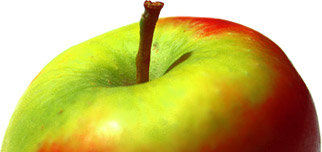A sweet self-fertile apricot - plum cross, also known as an Aprium.
USDA identification images for Aprisali
The identification paintings in the USDA Pomological Watercolor Collection span the years 1886 to 1942.
Citation: U.S. Department of Agriculture Pomological Watercolor Collection. Rare and Special Collections, National Agricultural Library, Beltsville, MD 20705.
Visitor reviews
Tree register
We don't have any registered trees for this variety yet. If you have a Aprisali tree you can register it here.
Origins
- Species: Prunus armeniaca - Apricot
Identification
- Period of origin: 2000
- Fruit colour: Red - dark
- Annual cycle: Deciduous
- Flower form: Single flower (5-8 petals)
- Flesh colour: Dark red
- Fruit size: Average
Using
- Picking season: Mid
- Keeping (of fruit): 1 week
- Flavour quality: Good
- Cropping: Good
- Fruit persistence: Normal ripening
- Food uses: Eating fresh
- Food uses: Culinary
- Picking month: July
Growing
- Gardening skill: Average
- Flowering group: 3
- Pollinating others: Average
- Vigour: Average vigour
- Bearing regularity: Regular
- Attractive features: Attractive fruit
- Self-fertility: Self-fertile
- Sunlight: Prefers full sun
- Pruning: Do not prune
Climate
- Climate suitability: Temperate climates
- Climate suitability: Warm climates
- Cold-hardiness: Cold-hardy
- Cold-hardiness: Not cold-hardy
Other qualities
- Disease resistance: Average
- Blossom wilt: Some resistance
Where to buy trees
The following tree nurseries offer Aprisali apricot trees for sale:
- Orange Pippin Fruit Trees (UK) United Kingdom
Aprisali apricot trees
Where to buy fresh fruit
No orchards have registered as growing this variety. If you grow this and want to register please go to our Orchard Registration form.

